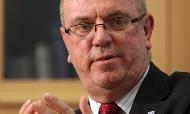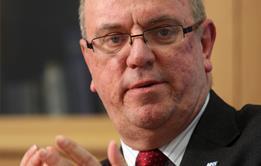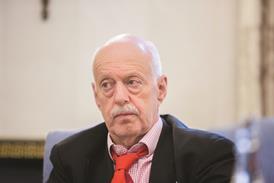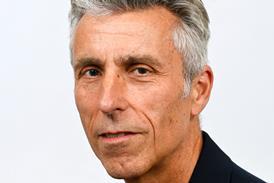NHS Commissioning Board chief executive Sir David Nicholson believes he should survive any criticism levelled at him by the forthcoming report into care failings at Mid Staffordshire Foundation Trust.

In an exclusive HSJ interview he also said he hoped to hold his new position for “the next few years”. He added: “I can see a whole load of things that I need to do.”
Sir David was chief executive of Shropshire and Staffordshire Strategic Health Authority during 2005 and 2006. He appeared in front of the inquiry for two days. The inquiry’s counsel Tom Kark said Sir David’s insistence that the care failings at Mid Staffordshire were not indicative of a “systemic” issue was a “dangerous attitude”. His declared reliance on the regulatory system to spot poor performance across the NHS was described as “naive” by Mr Kark.
Julie Bailey, who founded the campaign group Cure the NHS after being appalled by the care she witnessed her mother and others receive at Stafford Hospital, told The Daily Telegraph on Monday that: “Sir David needs to stand down immediately if he has got any conscience – he has stood by and watched hundreds of people die.”
Robert Francis’ report into Mid Staffordshire is due to be submitted to the Department of Health this month and is likely to be published in mid-February.
Sir David, who also holds the position of NHS chief executive until the end of March, told HSJ: “I haven’t seen the Francis report, I haven’t seen a leak or anything of the nature.” However, asked if he was considering his position, Sir David said “nothing I’ve seen” to date would made him feel it was under threat.
Mr Francis was required to send letters to anyone criticised in the inquiry. The board chief executive stated he been required to sign an undertaking not to discuss any letters “he may or may not” have received from the inquiry.
Sir David said: “Other people will decide [whether I keep my job], but from my perspective I can see a whole load of things that I need to do.”
He revealed that, “If I ever did think about” resigning it was in the wake of the publication of the initial private inquiry into Mid Staffordshire, also conducted by Mr Francis. Sir David spent a weekend reading the “patient stories” included in the report, something he described as a “completely salutary” experience.
However, he added: “Francis will challenge us around the culture of the NHS, he will challenge us around patient voice, he’ll challenge us about basic quality – I think I’ve got a big contribution to make to make all of those things better because of the experience and understanding I have.”
Sir David also dismissed a persistent rumour that he had taken out an injunction challenging the inquiry’s criticisms of his actions. He said: “I absolutely never would and have never made any kind of threat of doing it.”
The commissioning board and NHS chief made a detailed case for his role in improving patient quality in the past and future.
He said: “When I applied for the job of chief executive of the NHS [in 2006] it was in a particular set of circumstances. My pitch for the job was that NHS leadership had lost its focus, the purpose of why we were there. We got so excited about the technical changes that were going on that we missed out what we were trying do – which is to improve services for patients.”
Sir David claimed the work he led in the subsequent years, such as setting up the national quality board, lead to a “point in 2010 when the NHS was delivering all things it said it would deliver, we had a £1.5bn surplus, we had the best patient satisfaction we’d ever had and public confidence was at an all-time high”. Despite this he claimed all “still wasn’t right” with the NHS.
Two issues remained unresolved. The first was the need to deliver £20bn worth of efficiencies by 2015. “It seemed to me that I was in the best place to see that through to the conclusion”, he said. The other issues he said was the need “to give patients more clout - that is the unfinished business for me”.
He continued: “As chief executive of the NHS a lot of my legitimacy comes from the fact that I am accountable to an elected politician. In the new world the legitimacy of the commissioning board comes from the legislation. But that in itself will never shift anything.
“It struck me right from the beginning that the commissioning board’s legitimacy needs to come from its connection with patients and the public. That’s why we structured the commissioning board around the five domains of the outcomes framework and created the patients and information directorate. The commissioning board should know more about what patients were thinking and feeling.”
Visit www.hsj.co.uk over the coming days to read more from our interview with Sir David Nicholson
Nicholson: leading hospitals to be reshaped by commissioning board

The board will use its position as “a big, powerful commissioner” to reshape England’s largest teaching and specialist hospitals, says Sir David Nicholson.
- 1
- 2
- 3
- 4
 Currently
reading
Currently
reading
Nicholson argues he should survive to implement Mid Staffs recommendations




































87 Readers' comments